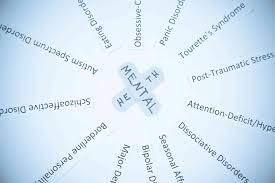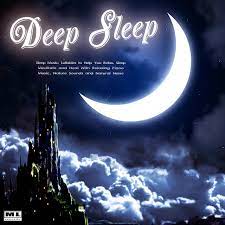Understanding Psychological Disorders: A Closer Look at Mental Health
Psychological disorders, also known as mental disorders or mental illnesses, are conditions that affect a person’s thoughts, emotions, behavior, and overall well-being. These disorders can range from mild to severe and can have a significant impact on an individual’s daily life.
There are various types of psychological disorders, each with its own unique set of symptoms and diagnostic criteria. Some common examples include anxiety disorders, mood disorders (such as depression and bipolar disorder), personality disorders, eating disorders, and schizophrenia.
One important aspect to understand about psychological disorders is that they are not simply a result of personal weakness or character flaws. They are complex conditions influenced by a combination of genetic, biological, environmental, and psychological factors. It is crucial to approach mental health with empathy and compassion rather than judgment or stigma.
Recognizing the signs and symptoms of psychological disorders is essential for early intervention and treatment. Symptoms can vary widely depending on the specific disorder but may include persistent feelings of sadness or anxiety, changes in sleep or appetite patterns, social withdrawal, difficulty concentrating or making decisions, extreme mood swings, hallucinations or delusions, excessive worrying or fearfulness, and changes in behavior.
Seeking professional help is crucial for individuals experiencing psychological disorders. Mental health professionals such as psychiatrists, psychologists, counselors, and therapists are trained to diagnose and treat these conditions effectively. They use evidence-based approaches such as psychotherapy (talk therapy), medication management (when necessary), cognitive-behavioral therapy (CBT), dialectical behavior therapy (DBT), and other therapeutic techniques tailored to the individual’s needs.
It is important to remember that recovery from psychological disorders is possible with appropriate treatment and support. However, it may be a journey that requires time and patience. Treatment plans often involve a combination of therapy sessions aimed at understanding the root causes of the disorder while developing coping mechanisms to manage symptoms effectively.
Support from family, friends, and a strong social network can also play a vital role in the recovery process. Building a supportive environment that encourages open communication, understanding, and empathy can significantly contribute to an individual’s overall well-being.
In conclusion, psychological disorders are real and impactful conditions that affect millions of individuals worldwide. Understanding the complexities of mental health is crucial for reducing stigma and promoting early intervention and treatment. By fostering empathy, seeking professional help when needed, and providing support to those affected by psychological disorders, we can create a society that prioritizes mental well-being and embraces the importance of psychological health.
Frequently Asked Questions: Understanding Psychological Disorders and Seeking Help
- What is a psychological disorder?
- What are the symptoms of a psychological disorder?
- How can I tell if I have a psychological disorder?
- How is a psychological disorder treated?
- What resources are available to help those with a psychological disorder?
What is a psychological disorder?
A psychological disorder, also known as a mental disorder or mental illness, refers to a condition that affects a person’s thoughts, emotions, behavior, and overall mental well-being. It is characterized by significant disturbances in thinking patterns, emotional responses, and/or behavioral functioning.
Psychological disorders can manifest in various ways and can range from mild to severe. They can interfere with an individual’s ability to function effectively in their daily life, relationships, work or school environment, and overall quality of life.
These disorders are not simply a result of personal weakness or character flaws. They are complex conditions influenced by a combination of genetic predisposition, biological factors (such as imbalances in brain chemistry), environmental influences (such as traumatic experiences or chronic stress), and psychological factors (such as personality traits or coping mechanisms).
There are numerous types of psychological disorders recognized by the Diagnostic and Statistical Manual of Mental Disorders (DSM-5), which is the standard classification system used by mental health professionals. Some common examples include anxiety disorders (such as generalized anxiety disorder or panic disorder), mood disorders (such as depression or bipolar disorder), personality disorders, eating disorders, substance use disorders, and schizophrenia.
The symptoms of psychological disorders vary depending on the specific condition but may include persistent feelings of sadness or anxiety, changes in sleep patterns or appetite, social withdrawal, difficulty concentrating or making decisions, extreme mood swings, hallucinations or delusions, excessive worrying or fearfulness, and changes in behavior.
Treatment for psychological disorders typically involves a combination of approaches tailored to the individual’s needs. This may include psychotherapy (talk therapy) with a mental health professional such as a psychologist or counselor to explore underlying issues and develop coping strategies. In some cases, medication management with a psychiatrist may be prescribed to help manage symptoms. Other interventions may include support groups, lifestyle changes (such as exercise and nutrition), stress reduction techniques, and self-care practices.
It is important to seek professional help if you or someone you know is experiencing symptoms of a psychological disorder. Mental health professionals are trained to diagnose, treat, and provide support for individuals dealing with these conditions. With appropriate treatment and support, many people with psychological disorders can experience significant improvement in their symptoms and lead fulfilling lives.
What are the symptoms of a psychological disorder?
Symptoms of psychological disorders can vary widely depending on the specific disorder and the individual experiencing it. It’s important to note that not everyone with a psychological disorder will exhibit the same symptoms, and some individuals may experience a combination of different symptoms. Here are some common symptoms that may indicate the presence of a psychological disorder:
- Changes in mood: Persistent feelings of sadness, hopelessness, irritability, or frequent mood swings.
- Anxiety and excessive worry: Experiencing intense and persistent worry, fearfulness, or panic attacks.
- Changes in sleep patterns: Insomnia (difficulty falling asleep or staying asleep), hypersomnia (excessive sleepiness), or changes in sleep duration or quality.
- Changes in appetite: Significant weight loss or gain, changes in eating patterns (e.g., binge eating or loss of appetite).
- Social withdrawal: Avoiding social interactions, isolating oneself from friends and family, or experiencing difficulty connecting with others.
- Difficulty concentrating: Problems with focus, attention, memory, decision-making, or problem-solving abilities.
- Behavioral changes: Noticeable changes in behavior such as increased aggression, impulsivity, restlessness, or engaging in risky behaviors.
- Hallucinations and delusions: Perceiving things that are not there (hallucinations) or holding false beliefs despite evidence to the contrary (delusions). These symptoms are commonly associated with psychotic disorders like schizophrenia.
- Physical symptoms: Unexplained physical complaints such as headaches, stomachaches, fatigue, muscle tension, or other bodily discomforts that have no apparent medical cause.
- Substance abuse: Increased reliance on alcohol or drugs as a means to cope with emotional distress.
It is important to remember that this list is not exhaustive and that each disorder has its own specific set of symptoms. Additionally, it is essential to consult with a qualified mental health professional for an accurate diagnosis if you suspect you may be experiencing symptoms of a psychological disorder. They can provide a comprehensive evaluation and recommend appropriate treatment options tailored to your specific needs.
How can I tell if I have a psychological disorder?
If you are concerned that you may have a psychological disorder, it is important to speak with a mental health professional. They can assess your symptoms and help determine whether or not you have a disorder. It is also important to remember that having certain symptoms does not necessarily mean that you have a disorder, as everyone experiences different levels of distress in their lives. If you are experiencing any of the following signs or symptoms, it may be beneficial to seek professional help:
• Feeling overwhelmed by sadness, fear, or anger
• Difficulty concentrating or making decisions
• Changes in appetite, energy level, or sleep patterns
• Significant changes in behavior or mood
• Difficulty managing daily tasks and responsibilities
• Feelings of hopelessness or worthlessness
• Excessive worry or anxiety
• Intrusive thoughts or memories
• Excessive use of alcohol or drugs
• Suicidal thoughts
How is a psychological disorder treated?
Psychological disorders are typically treated through a combination of therapeutic interventions, medication management (if necessary), and lifestyle changes. The specific treatment approach depends on the type and severity of the disorder, as well as the individual’s unique needs and preferences. Here are some common treatment methods:
- Psychotherapy: Also known as talk therapy, psychotherapy involves working with a mental health professional to explore thoughts, emotions, and behaviors related to the disorder. Different types of therapy may be used, such as cognitive-behavioral therapy (CBT), which focuses on identifying and changing negative thought patterns and behaviors; dialectical behavior therapy (DBT), which helps individuals manage intense emotions and develop coping skills; or interpersonal therapy (IPT), which focuses on improving relationships and communication skills.
- Medication: In some cases, medication may be prescribed to help manage symptoms associated with psychological disorders. Psychiatric medications can help regulate brain chemistry and alleviate symptoms such as depression, anxiety, or psychosis. Medication is typically prescribed by a psychiatrist who monitors its effectiveness and adjusts the dosage as necessary.
- Supportive Services: Supportive services can provide additional assistance in managing psychological disorders. This may include support groups where individuals can connect with others facing similar challenges, case management services to help coordinate care and access resources, or vocational rehabilitation programs aimed at assisting individuals in returning to work or maintaining employment.
- Lifestyle Changes: Making positive lifestyle changes can also contribute to the management of psychological disorders. This may involve adopting healthy habits such as regular exercise, balanced nutrition, adequate sleep, stress reduction techniques (e.g., mindfulness or relaxation exercises), avoiding substance abuse, and engaging in activities that promote overall well-being.
- Self-Help Strategies: Individuals with psychological disorders can also benefit from implementing self-help strategies into their daily lives. These strategies may include practicing self-care activities like journaling or engaging in hobbies that promote relaxation and enjoyment; learning and using coping skills to manage stress and regulate emotions; and developing a support network of trusted individuals who can provide understanding, encouragement, and assistance when needed.
It is important to note that treatment plans are highly individualized, and what works for one person may not work for another. The involvement of mental health professionals in assessing, diagnosing, and guiding the treatment process is crucial. With proper support, treatment, and ongoing management, individuals with psychological disorders can experience improvement in symptoms, enhanced functioning, and an improved quality of life.
What resources are available to help those with a psychological disorder?
There are numerous resources available to help individuals with psychological disorders. Here are some commonly utilized ones:
- Mental Health Professionals: Psychiatrists, psychologists, counselors, and therapists specialize in diagnosing and treating psychological disorders. They provide individualized therapy sessions, medication management (if necessary), and guidance tailored to the specific needs of each individual.
- Support Groups: Support groups bring together individuals facing similar challenges, providing a safe space for sharing experiences, gaining insights, and receiving emotional support. These groups can be led by mental health professionals or organized by advocacy organizations.
- Helplines and Crisis Hotlines: Many countries have helplines or crisis hotlines that offer immediate assistance to individuals in distress. Trained professionals provide guidance, support, and referrals to appropriate resources.
- Online Resources: Numerous websites and online platforms offer valuable information about different psychological disorders, treatment options, coping strategies, and self-help resources. However, it is important to rely on reputable sources such as government health agencies or established mental health organizations.
- Community Mental Health Centers: These centers offer a range of mental health services on an outpatient basis. They may provide counseling, therapy sessions, medication management, case management services, and referrals to specialized care when needed.
- Nonprofit Organizations: Many nonprofit organizations focus on specific psychological disorders or mental health issues. They often provide educational materials, support networks, advocacy efforts, and community outreach programs to raise awareness and reduce stigma surrounding mental health.
- Employee Assistance Programs (EAP): Some workplaces offer EAPs as part of their benefits package. EAPs provide confidential counseling services for employees dealing with personal or work-related issues that may impact their mental well-being.
- Educational Institutions: Colleges and universities often have counseling centers that offer free or low-cost mental health services for students. These centers typically provide individual counseling sessions as well as workshops on stress management or other relevant topics.
- National and Local Mental Health Associations: National and local mental health associations can provide information, resources, and referrals to services in your area. They often have helplines or online directories that connect individuals to appropriate mental health professionals or organizations.
Remember, seeking help is a sign of strength, and no one should face psychological disorders alone. If you or someone you know is struggling with a psychological disorder, reaching out to these resources can be the first step towards getting the support and treatment needed for recovery and well-being.




